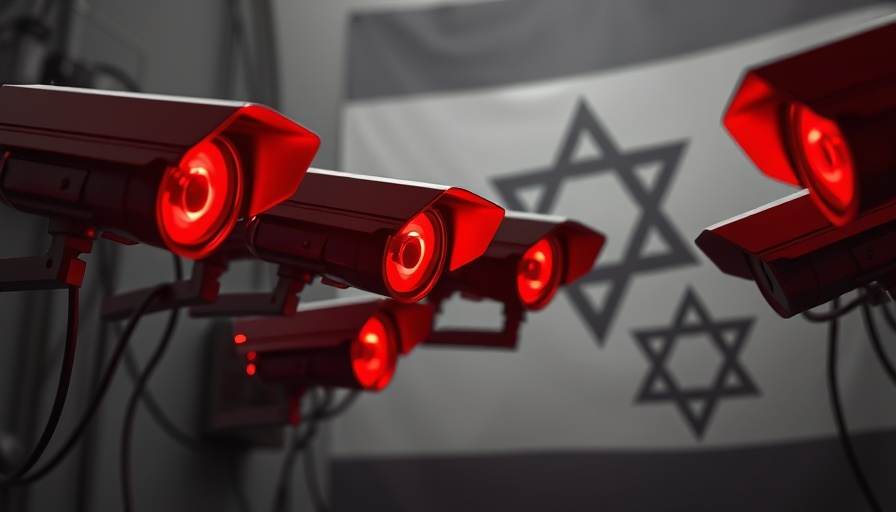
The Surprising Threat of Everyday Technology: Iran's Security Camera Hacking
Recent tensions between Israel and Iran have taken a startling turn, highlighting the vulnerabilities of everyday technology. Israeli officials revealed that Iranian operatives have been hacking private security cameras in Israel as part of their espionage efforts. In a time where geopolitical clashes become increasingly digital, the implications of this breach could be profound for both national security and individual privacy.
Understanding the Dangers of IoT Vulnerabilities
Internet of Things (IoT) devices, including security cameras, have become prevalent in homes and public spaces worldwide, boosting convenience in surveillance and personal security. However, they carry significant risks if not properly secured. This incident serves as a stark reminder of the potential vulnerabilities associated with these devices. According to Refael Franco, a former deputy director at the Israel National Cyber Directorate, it was evident that Iranians were attempting to access these cameras to gather intelligence on Israeli military operations. Many IoT devices lack the robust security measures found in more sophisticated technology, making them easy targets for cyber warfare.
The Gravity of Cyber Warfare in Modern Conflicts
The tension surrounding this incident is not unique to Israel and Iran; it reveals how technology underpins contemporary conflicts. A parallel example can be seen in Ukraine, where hackers from the country's intelligence service launched attacks that disabled significant Russian telecom infrastructure. Such events underline a critical evolution in warfare: the battleground is not just physical but also exists in the digital realm, where cyber threats can incapacitate entire networks and reveal sensitive information.
How Secure Should Our Security Cameras Be?
With the knowledge that security cameras may be targeted for espionage, many households may want to reevaluate their security practices. Franco recommends that individuals regularly update their cameras’ passwords and use two-factor authentication whenever possible. These steps not only protect personal devices but can also negate chances of broader implications in the case of cyber infiltration. Furthermore, consumers should only purchase devices from reputable manufacturers that prioritize security features in their products, ensuring software updates and customer support.
Emotional Consequences: Fear and Trust in Technology
The implications of this cyber threat extend beyond technical vulnerabilities; they tap into broader societal emotions, specifically fear and distrust. Individuals who rely on technology for protection may now find themselves questioning the effectiveness of their systems. This has broader ramifications, especially as we increasingly integrate technology into our homes and lives. Affected individuals may feel vulnerable in their own spaces as new threats emerge from the very devices meant to protect them.
Future Predictions: A New Age of Cybersecurity
Looking ahead, the cybersecurity landscape is undoubtedly evolving. As operational technology converges with IoT devices, we can expect to see major shifts within sectors focusing on safety and surveillance. Authorities in cybersecurity will need to preemptively counter potential threats by investing in stronger defenses and education surrounding personal device security. The rise of quantum computing may also serve as a double-edged sword, as it presents both advanced defense mechanisms and new vulnerabilities that cybercriminals may exploit.
What Can You Do to Protect Yourself?
As we navigate a world intertwined with technology, individuals have an array of options to enhance their cybersecurity measures. Start by educating yourself on the latest vulnerabilities and updates related to your devices. Regularly updating software and firmware should become a priority, and disposing of outdated technology securely can prevent potential risks. Additionally, consider security camera systems that incorporate advanced encryption to bolster your privacy measures.
Ultimately, being proactive about technology security can significantly decrease the potential risks associated with cyber threats, ensuring that everyday devices remain trustworthy allies rather than vulnerabilities.
 Add Row
Add Row  Add
Add 




Write A Comment